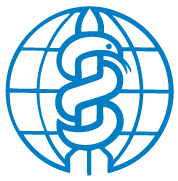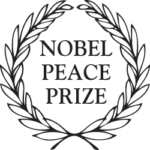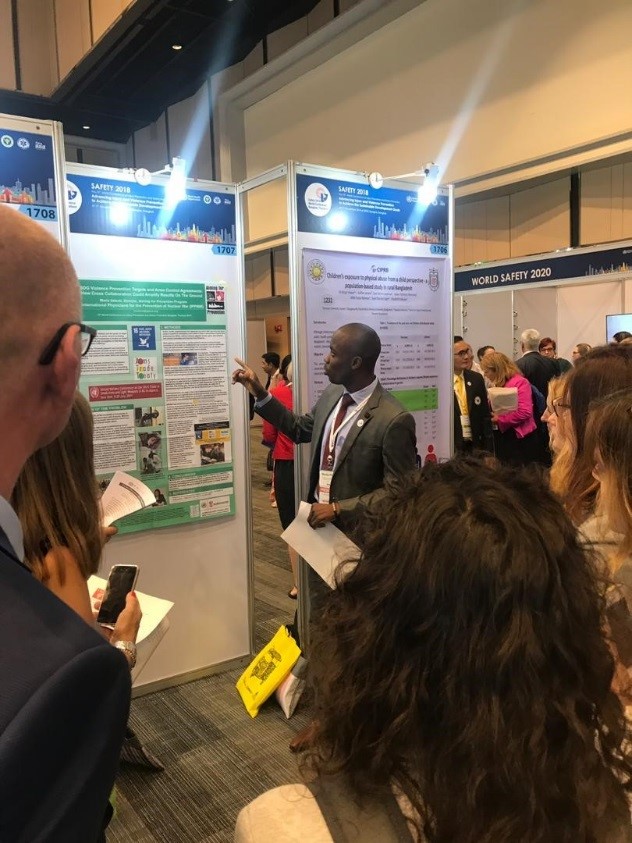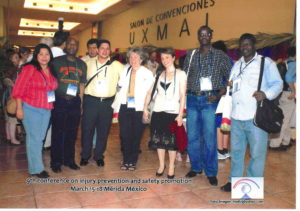International Health Conferences
A public health approach to small arms injury focuses on the risk factors and health effects of armed violence, and brings into the arena the public health community’s emphasis on scientific methodologies and prevention. Health and medical conferences are forums that can be used to educate on the human dimensions of armed violence and build capacity within the medical, health and research communities to address armed violence as a public health threat. For this reason, IPPNW has been active in organizing as well as participating in a number of important international conferences on health and armed violence since 2001. They include the following:
IPPNW launched its Aiming for Prevention campaign in September 2001 at the first International Conference on Small Arms, Gun Violence held in Helsinki, Finland.
IPPNW has actively presented at and participated in many World Conferences on Injury Prevention and Safety Promotion (“Safety” conferences), including the following:
- Safety 2018, Bangkok, Thailand
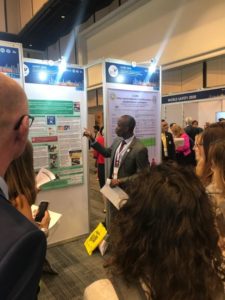 Dr. Masiku Phiri, chair of the Executive Committee of IPPNW Zambia, represented IPPNW and AFP at Safety 2018 in Bangkok, Thailand. Dr. Phiri gave an oral presentation on the Use of Social Media to Raise Awareness about Medical and Social Service Aid to Victims of Gender-Based Violence in Zambia on a panel at this international academic meeting co-sponsored by the World Health Organization. Dr. Phiri also presented AFP Director Maria Valenti’s poster, SDG violence prevention targets and international arms control agreements: how cross collaboration could amplify results on the ground. “I was delighted to represent IPPNW at this prestigious event and raise the profile of our worldwide work on armed violence prevention and nuclear weapons abolition,” said Dr. Phiri.
Dr. Masiku Phiri, chair of the Executive Committee of IPPNW Zambia, represented IPPNW and AFP at Safety 2018 in Bangkok, Thailand. Dr. Phiri gave an oral presentation on the Use of Social Media to Raise Awareness about Medical and Social Service Aid to Victims of Gender-Based Violence in Zambia on a panel at this international academic meeting co-sponsored by the World Health Organization. Dr. Phiri also presented AFP Director Maria Valenti’s poster, SDG violence prevention targets and international arms control agreements: how cross collaboration could amplify results on the ground. “I was delighted to represent IPPNW at this prestigious event and raise the profile of our worldwide work on armed violence prevention and nuclear weapons abolition,” said Dr. Phiri.
- Safety 2016, Tampere, Finland
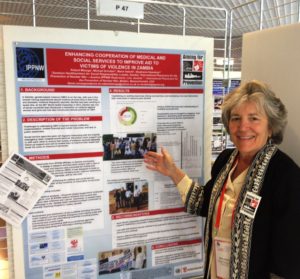 “Health professionals’ role in the humanitarian disarmament movement” was one of four presentations IPPNW made at Safety 2016 in Tampere, Finland. We were pleased to once again bring the issue of armed violence prevention and health to the attention of this important gathering of public health experts. AFP director Maria Valenti presented two posters including Enhancing cooperation of medical and social services to improve aid to victims of violence in Zambia based on the promising results of the IPPNW Austria/Zambia research/education project in Lusaka. Dr. Okolo from IPPNW Nigeria presented his paper “The public health implications of small arms and light weapons injuries in Sokoto state, Northwest Nigeria. Valenti and Okolo also spoke to students at the Tampere Peace Research Institute about IPPNW and armed violence and health.
“Health professionals’ role in the humanitarian disarmament movement” was one of four presentations IPPNW made at Safety 2016 in Tampere, Finland. We were pleased to once again bring the issue of armed violence prevention and health to the attention of this important gathering of public health experts. AFP director Maria Valenti presented two posters including Enhancing cooperation of medical and social services to improve aid to victims of violence in Zambia based on the promising results of the IPPNW Austria/Zambia research/education project in Lusaka. Dr. Okolo from IPPNW Nigeria presented his paper “The public health implications of small arms and light weapons injuries in Sokoto state, Northwest Nigeria. Valenti and Okolo also spoke to students at the Tampere Peace Research Institute about IPPNW and armed violence and health.
- Safety 2012, Wellington, New Zealand
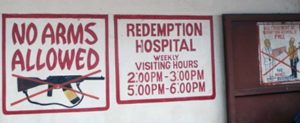
Dr. Lucie Collinson of IPPNW New Zealand presented a paper based on research conducted by herself and NZ colleague Dr. Andrew Winnington about hospital-based researched on armed violence undertaken in conjunction with the Liberia Armed Violence Observatory and with the support of Small Arms Survey in Geneva. titled Intervention to Improve the Quantity and Quality of Medical Data on Intentional Injuries Provided to the Liberian Armed Violence Observatory. AFP Director Maria Valenti’s poster the Medical Community Role in Global Arms Trade Policy Discussions was also presented. Professor Nick Wilson of IPPNW NZ also participated in Safety 2012. Shortly after Safety 2012, Dr. Collinson presented the related paper A hospital record audit of intentional injuries to assess the quantity and quality of data provided to the Liberian Armed Violence Observatory at the Otago International Health Research Network Conference in New Zealand.
Poster: Safety 2012 Valenti poster pdf. Medical community role in global arms trade policy discussions. Maria Valenti.
Poster: Safety 2012 Collinson poster pdf Assessment of the quality of medical data on armed injuries provided to the Liberian Armed Violence Observatory. Lucie Collinson, Andrew Winnington, Maria Valenti, Mary Vriniotis.
- Safety 2010, London, UK
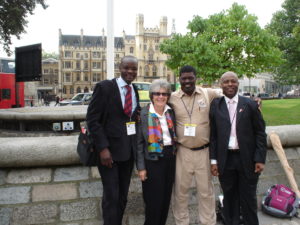
IPPNW staff and members from the US, Zambia, Kenya, Uganda and Nigeria participated in contributing the medical perspective to this issue in a variety of sessions and at side meetings over the four-day conference, reprising our slogan that “guns are bad for health.” The key theme was Safe and Equitable Communities. IPPNW presented 12 posters and presentations on a range of topics such as domestic violence in Zambia, medical screening for intimate partner violence in Nigeria, economic costs of firearm injuries at Kenyatta hospital, Nairobi, the Nigerian radio project “Bringing Peace to the People,” communications and technology challenges to participation in violence prevention programming in the global South, and a screening of the film “Faces of Violence” produced by colleagues at the Geneva Declaration. IPPNW members actively participated in a number of side meetings as well, including the WHO African regional meeting, the Armed Violence Prevention project, and the WHO meeting on intimate partner violence.
- Safety 2008, Merida, Mexico
IPPNW members from 6 countries had 13 papers and posters accepted to the conference tracks of Violence, Building Capacity, and Advances on Injury Research and Surveillance. This bi-annual conference was attended by over 1000 delegates from around the world. See abstracts and posters of papers presented below. Most IPPNW members attending received full scholarships from the conference organizers. Members spread the message that “Guns are bad for health” and made important contributions to other sessions in the Q&A segments, raising key critical health issues and responding to key points.
IPPNW actively participated in a meeting of the WHO Violence Prevention Alliance and contributed to several other side meetings conducted by WHO.
Dr. Ime John, IPPNW co-president, was quoted in a press release issued by the International Action Network on Small Arms (IANSA). A number of IPPNW delegates also participated in other events including the second global meeting of the International Society of Injury and Violence Prevention. Ministers of Health from over 100 countries issued the Merida Declaration [PDF] on violence prevention.
Presentations: (Available upon request)
Multinational Injury Surveillance Pilot Project in Africa (MISPP)
Diego E. Zavala, M.Sc., Ph.D., Associate Professor, Public Health Program, Ponce School of Medicine, Puerto Rico
Violence Prevention Training Course with a Public Health Approach and an Experience from El Salvador
Emperatriz Crespin, M.D., MPH, El Salvador
Posters:
Intra-Family Violence and Maltreatment Affecting Children Collectors of Trash in “El Fortin” Leon, Nicaragua 2007
Cesar Aleman, 7th year medical student and Latin American student representative of IPPNW
Poster: Domestic Violence Among Pregnant Women in Lusaka, Zambia
Dr. Robert E. Mtonga
Poster: Gun Violence in Nigeria: A focus on ethno-religious conflict in Kano
Dr. Ime Akpan John
Poster: Implementing a Hospital Based Injury Surveillance System in Nigeria – a Preliminary Report
Dr. Ime Akpan John
Poster: Engaging Medical Professional in Violent Injury Research: the Role of a Nongovernmental Organization (NGO)
Maria Valenti, Aiming for Prevention Program, IPPNW
Poster: Implementing a Hospital Based Injury Surveillance System in Zambia – A Preliminary Report
Diego E. Zavala, M.Sc., Ph.D., Associate Professor, Public Health Program, Ponce School of Medicine, Puerto Ric
- Safety 2006, Durban, South Africa
8th World Conference on Injury Prevention Report
IPPNW helped organize with the Institute for Security Studies the pre-conference to the Durban, 2006 World Injury Conference entitled “Driving change: Developing Firearm Policies for Safer Societies.”
Safety 2006 Preconference Driving Change
- Safety 2004, Vienna, Austria
IPPNW participated as a partner with WHO, US Centers for Disease Control (CDC), Physicians for Human Rights and UNICEF in planning and conducting the first two conferences on “The Role of Public Health in Preventing War-Related Injury,” pre-conferences to the biennial World Injury Conferences in 2002 in Montreal, and the second in Vienna in June 2004.
